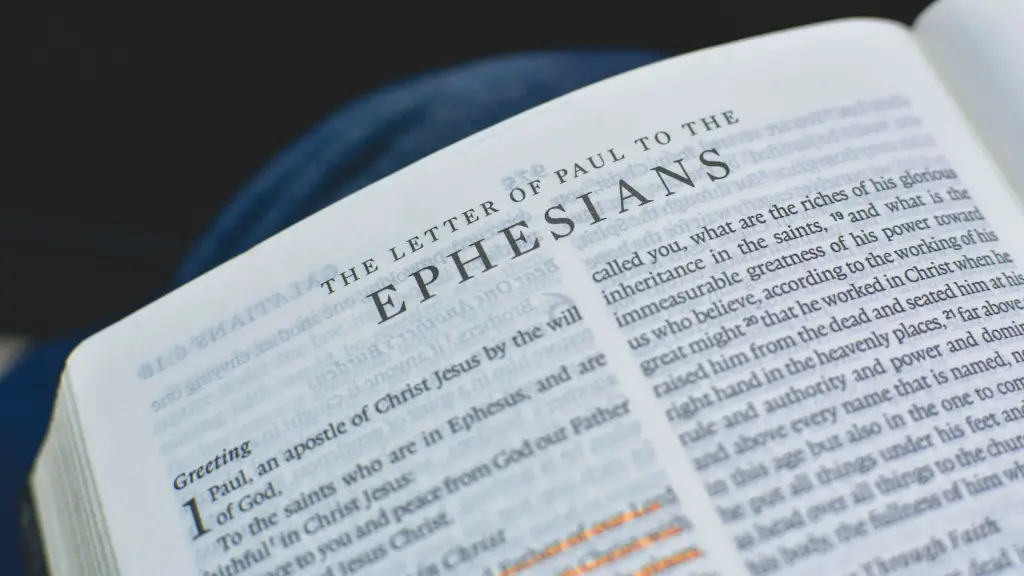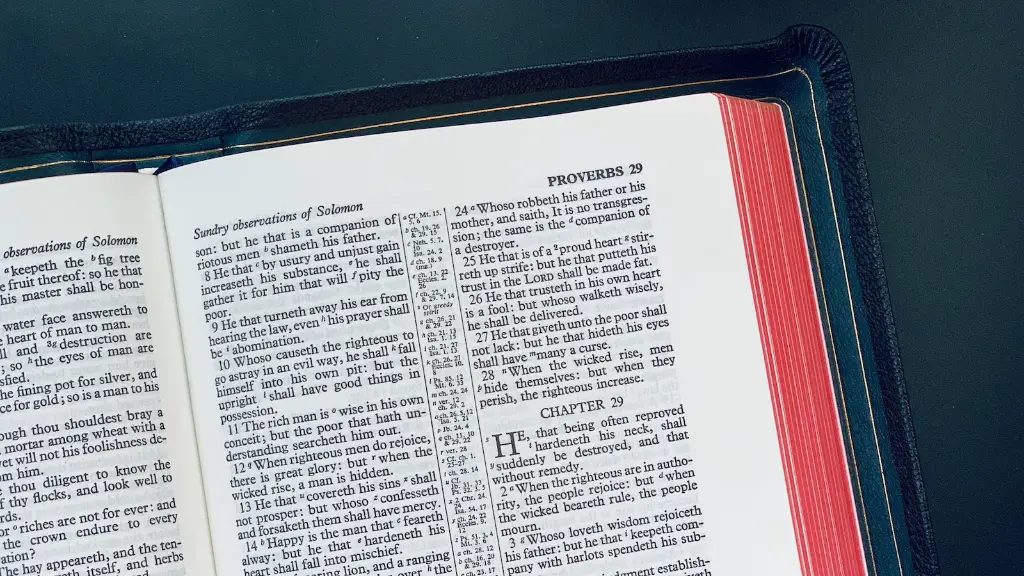The Bible and homosexuality is a complex and confusing topic. On the surface, the Bible appears to be quite clear in its condemnation of any kind of same-sex romantic relationships. In the Old Testament, Leviticus 18:22 and 20:13 condemn “anyone who lies with a male as one lies with a female”, punishable by death. In the New Testament, Romans 1:26-27 and 1 Corinthians 6:9-10 both describe same-sex attraction as unnatural and wrong in the sight of God. Despite the explicit language of Scripture, there is considerable debate amongst scholars and theologians as to what exactly “homosexuality” meant to the writers of the Bible. What did they really mean, and what do those words mean to us today?
The first key factor to understanding the Bible’s teaching on homosexuality is to recognize that the world has evolved dramatically since the time of its writing. Many biblical laws, such as circumcision and stoning, have lost their relevance, a nature seen throughout the history of both Christians and Jews. This is not to say that Israelites or Christians are somehow excused from following God’s will, but it does suggest that the writers of the Bible were operating within a particular historical context and should not be held to a timeless standard.
A second factor that is often overlooked is the importance of context in biblical interpretation. This is especially relevant when considering the so-called “clobber verses”, passages that appear to single out homosexuals for particular condemnation. For example, in Romans 1:26-27, Paul appears to label same-sex relationships as “unnatural”, and worthy of God’s wrath. Yet, many scholars believe the passage was a response to a specific theological debate of the time, rather than a blanket condemnation of all homosexual relationships. This understanding is reinforced by the fact that Ancient Greek had no term for “homosexual” as we know it today. Thus, it is important to recognize the cultural and religious differences that beget the biblical writings, and how these differences can affect our interpretations.
Though the “clobber verses” continue to be controversial, there are more general teachings in the Bible that are more relevant to today’s discussion of homosexuality. The common theme throughout much of the Bible is the idea of love and respect of one’s neighbor. In the Sermon on the Mount, Jesus challenges his followers to “Love your neighbor as yourself” (Matthew 22:39). This command is repeated throughout the New Testament and serves as a precursor to much of our modern thinking on ethics and morality. For Christians, this command should be the guiding force in our interpretation of the Bible and its teachings on homosexuality.
The most common response amongst evangelicals is that same-sex relationships violate the original purpose of marriage as instituted by God, and instead seek to harm or corrupt traditional marriage. Proponents of this view cite passages such as Ephesians 5:31, which says that marriage is a “profound mystery” between a man and a woman. This argument, however, is flawed in that it assumes the Bible is static and does not allow for evolution, either in its understanding of marriage or of love. As society has progressed, our understanding of love and marriage has changed and continues to evolve. Just as we should not enforce mosaic law on issues of human sexuality, we should not limit love to one set of definitions.
Ultimately, how one interprets the Bible’s teachings on homosexuality depends largely on the individual’s worldview. For those who believe in a literal interpretation or “inerrancy” of Scripture, there may be no room for nuance or divergence from a strict reading of the text. Conversely, progressive Christians point to the loving, inclusive nature of Jesus’ teachings and suggest that same-sex relationships and unions can be respected as a reflection of God’s abundant love.
The Debate Over Biblical Interpretation
The debate over the Bible and homosexuality is far from over. On one side, conservative scholars insist on a literal interpretation of Scripture, arguing that the Bible’s condemnation of homosexuality is clear and unambiguous. On the other hand, progressive scholars suggest a more nuanced approach, considering the historical context of the writing and the evolution of societal paradigms. This debate is not simply limited to religious studies either. It is one which has sparked debate and conflict between churches, denominations, and even countries. Regardless of one’s personal beliefs, the debate over the Bible and homosexuality is an important and timely one.
The divide between conservatives and progressives can also be seen in the debate over same-sex marriage. Progressives suggest that the recognition of same-sex marriage does not go against the Bible’s teachings, as it reflects the same “love your neighbor” idea espoused throughout Jesus’ ministry. Conversely, conservatives cite biblical passages such as Ephesians 5:31, arguing that any union other than between a man and a woman is a violation of God’s will.
Ultimately, how one interprets the Bible’s teachings on homosexuality is a complex and deeply personal issue. It involves reading Scripture with cultural and historical context in mind, recognizing the changing nature of societal conventions, and remaining open to progressive interpretations. There is no right or wrong answer. In the end, it depends on one’s personal journey and spiritual convictions.
The Impact Of Bible Teaching On Politics And Law
The debate over the Bible and homosexuality also has important implications for politics and law. In the U.S., there have been numerous instances, including bills, judicial decisions, and even constitutional amendments, which have been fueled by religious beliefs and interpretations, and in some cases, by literal interpretations of the Bible. This has led to the restriction of rights for LGBTQ+ individuals in the realms of marriage, adoption, and other forms of legal recognition.
Earlier this year, the U.S. Supreme Court heard oral arguments in the case of Fulton v. City of Philadelphia, concerning the city’s decision to stop placing foster children with Catholic Social Services due to their religious beliefs about marriage and sexuality. The importance of this case can not be understated, as it will be the first time the Supreme Court has considered the role of religious belief in matters of public policy and law. It is possible that the outcome of the case will have wide-reaching implications for those wishing to use religious beliefs as a basis for assessing public policy.
The outcome of Fulton v. City of Philadelphia may ultimately depend on the Court’s interpretation of the Bible and its teachings on homosexuality. This is a difficult task, as the Bible often speaks in general terms and does not directly address issues such as same-sex marriage or LGBTQ+ rights. Thus, the Court must attempt to interpret the Bible in a way that reflects modern society’s understanding of love and equality, while still taking into consideration the cultural and historical context of the writing.
At the end of the day, the Bible is an ancient document containing many different teachings and interpretations. Depending on one’s worldview, one can find passages which condemn homosexuality and those which seem to support it. Whether or not the Bible ultimately supports or condemns homosexuality, one thing is certain–the debate over what the Bible really teaches about homosexuality is far from over.
The Role Of The Church And Religious Institutions
Regardless of one’s individual beliefs on the matter, it is clear that the Bible and its teachings on homosexuality have a profound impact on society, particularly on the role of religious institutions. From a pastoral perspective, many churches and congregations are actively attempting to find ways to be more inclusive and welcoming to LGBT+ members, often through changes in language, teaching, and policy. This reflects the contemporary understanding of the many different expressions of love and ways of life, and is seen as an attempt by churches to be more accepting and understanding of all people, regardless of their lifestyle choices.
In practical terms, the debate over the Bible and homosexuality has seen the emergence of organizations such as Meet Your Neighbors, which is dedicated to providing education and resources on LGBT+ issues to churches and religious leaders. There has also been an increase in the number of LGBT+ affirming churches and ministries across the United States, representing a shift in the way churches view homosexuality, as well as providing a safe haven for people of all sexual orientations. This shift indicates that there is an increasing recognition of the diversity of love and relationships, as well as the need for churches to provide thoughtful and inclusive pastoral care.
The Bible and homosexuality is an emotionally charged topic, and it is no surprise that it continues to be a source of debate among religious leaders and scholars. Ultimately, how one interprets the Bible’s teachings on homosexuality is a deeply personal issue, which must be addressed with care and understanding for all involved. As society continues to evolve, it is important to remember that the Bible is an ancient document containing many different interpretations, and that its teachings on homosexuality should be considered in light of its cultural and historical context.
The Role Of Love In The Bible’s Teachings On Homosexuality
When considering the Bible and homosexuality, it is important to remember the common theme of love that is woven throughout much of the text. From Jesus’s command to “love your neighbor as yourself” to the various commands to live in harmony with one another, the Bible contains numerous references to the importance of loving others. As people of faith, it is our duty to strive to live a life of love and to model our behavior accordingly.
However, this does not mean that we must agree on all points. There will always be differences in interpretation, world-views, or religious backgrounds, and it is important to recognize and respect these differences. Rather than judgments or condemnation, we must strive to demonstrate the love that is taught throughout the Bible. This means listening to one another with an open mind and heart, engaging in thoughtful discussion and dialogue, and recognizing that our beliefs may not always match up.
Additionally, love in the Bible is not just about interpersonal relationships. It is also an important concept when considering how we treat our environment, the poor and marginalized, and those different from us. An important part of loving our neighbors is recognizing that everyone’s journey is different, and that there is beauty and divine worth in all of us, regardless of our beliefs or backgrounds. We are all beloved creations of God, and it is our duty to treat each other as such.
The Role Of The Bible In Contemporary Society
With the Bible’s ambiguous and complex teachings on homosexuality, it is important to consider its place in contemporary society. Many of the issues surrounding homosexuality have a larger moral and ethical component, and the Bible plays an important role in shaping our understanding of these issues. Thus, it is essential to recognize the Bible’s importance while also understanding it in light of the changing world in which we live.
In the United States, the Bible continues to be an influential authority in matters of public policy and legal interpretation. This is especially true in matters of sexual orientation and gender identity. For many religious conservatives, the Bible serves as the basis for their beliefs and for their positions on issues such as same-sex marriage or the admission of LGBT+ individuals into religious institutions. For progressives, however, the Bible may be





